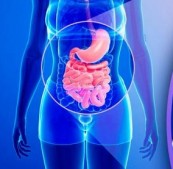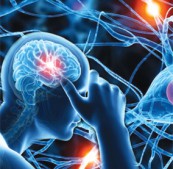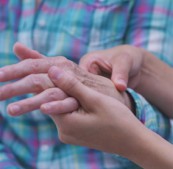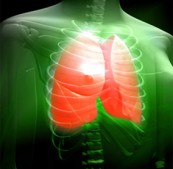Progressive Supranuclear Palsy

Progressive Supranuclear Palsy, also called Steele-Richardson-Olszewski syndrome, is an uncommon brain disorder that causes serious problems with walking, balance and eye movements. The disorder results from deterioration of cells in areas of your brain that control body movement and thinking. Progressive Supranuclear Palsy worsens over time and can lead to life-threatening complications, such as pneumonia and swallowing problems. With Ayurvedic medicines and Panchakarma therapies we can treat for Progressive Supranuclear Palsy, so treatment focuses on managing the signs and symptoms.
Brief with types
PSP is frequently misdiagnosed as Parkinson's disease because of the slowed movements and gait difficulty, or as Alzheimer's disease because of the behavioral changes. It is one of a number of diseases collectively referred to as Parkinson plus syndromes.
Signs & Symptoms
The initial symptoms in two-thirds of cases are loss of balance especially to backside, lunging forward when mobilizing, fast walking, bumping into objects or people, and falls. Other common early symptoms are changes in personality, a general slowing of movement, and visual symptoms.
Later symptoms and signs are
-
Dementia (typically including loss of inhibition and ability to organize information),
-
Slurring of speech,
-
Difficulty swallowing
-
Difficulty moving the eyes, particularly in the vertical direction.
The latter accounts for some of the falls experienced by these patients as they are unable to look up or down.
Some of the other signs are
-
poor eyelid function
-
contracture of the facial muscles
-
A backward tilt of the head with stiffening of the neck muscles
-
sleep disruption
-
Urinary incontinence and
-
Constipation.
Cardinal manifestations:
-
Supranuclear ophthalmoplegia.
-
Neck Dystonia.
-
Parkinsonism(Parkinsonism is a clinical syndrome characterized by tremor, Bradykinesia, rigidity, and postural instability)
-
Pseudobulbar palsy.
-
Behavioral and cognitive impairment.
-
Imbalance and walking difficulty.
-
Frequent falls.
Points for differential diagnosis from Parkinson’s Disease
-
On close inspection, eye movements called "square-wave jerks" may be visible when the patient fixes at distance.
-
The weakness/paralysis of eye muscles experienced by these patients mainly concerns voluntary eye movement and the inability to make vertical saccades(Quick, simultaneous vertical movement of both eyes between two or more phases of fixation in the same direction), which is often worse with downward saccades. Patients tend to have difficulty looking down (a downgaze palsy) followed by the addition of an upgaze palsy.
-
Difficulties with convergence(convergence insufficiency), where the eyes come closer together while focusing on something near, like the pages of a book, is typical. Because the eyes have trouble coming together to focus at short distances, the patient may complain of diplopia (double vision) when reading.
Causes (Nidana):
The signs and symptoms of the disorder result from deterioration of cells in areas of your brain, especially those that help you control body movements (midbrain), neurons in Supranuclear area and thinking (frontal lobe). Researchers have found that the deteriorating brain cells of people with Progressive Supranuclear Palsy (PSP) have abnormal amounts of a protein called tau. Clumps of tau are also characteristic of other neurodegenerative disorders, such as Alzheimer's disease.
Rarely, Progressive Supranuclear Palsy (PSP)occurs within a family. But a genetic link isn't clear, and most people with Progressive Supranuclear Palsy (PSP) haven't inherited the disorder.
Treatments:
The classical treatment advised for Progressive Supranuclear Palsy (PSP) is
Panchakarma
Ayurveda takes a unique approach to the management by Ayurvedic principles with a special emphasis on eliminating their causes by Panchakarma and medicinal treatment with the help of a wide range of herbal and herbo-mineral drugs. Ayurveda describes a large number of nootropic drugs (stimulating to mental activity, causing cerebral or intellectual activity) and nervous system tonics (i.e., Rasayana in the treatment of Vata diseases). Being a neurodegenerative disease, Parkinson’s disease is treated by Rasayana or Rejuvinative approach in Ayurveda. Rasayana drugs are essentially nutraceutical agents and Medhya Rasayana is specific neuro-nutrients or nervine tonics with nootropic effect.
Medication
Internal medicines and external applications of medicines play a key role in the treatment of Progressive Supranuclear Palsy. Internal medicines include Kashaya(Decoction), tablets, capsules, Ghruthas(medicated Ghee) Bhasmas and medicated oils.
Pathya (Dietary Regimens)
Pathya for Progressive Supranuclear Palsy - a nutritious diet:- high fibre food, wheat, jowar, kulatha, masha, til and sarsha (mustred) oil, ghee, milk, lashuna, hingu, ela, and specially meat of some selective animals.
Treatment
Physiotherapy
Patients are often referred to physiotherapy in order to manage their symptoms. Most physiotherapy interventions for PSP include an exercise regimen that consists of
-
Aerobic exercises
-
Transfer/balance training
-
Gait training
-
Weighted tool can be used to prevent backwards falls
-
Flexibility training
-
Intensive routines
-
Goal-oriented tasks
-
Visual tracking
-
Prism lenses sometimes used to further train gaze
-
Motor-cognitive exercises
An exercise program following these guidelines is recommended for about 1-2 hours a day, 5 days a week, in order to show any significant improvements.
Yoga and Meditation
Yoga and meditation may play a role in improving symptoms of Alzheimer’s disease. Performing to this brain forms new connections and recover from the injuries which had in the disease.
Patients doing to this may find peace and feel happier, Yoga and meditation have the following benefits:
-
Reverses memory loss
-
Improves sleep quality
-
Increases energy levels
-
Downregulates inflammatory genes
-
Improves psychological and spiritual well being
-
Activates significant anatomical areas of the brain
Prevention
In Ayurveda, A regulated lifestyle, wholesome diet, appropriate behavior, and following ideal code of conduct as quoted in Ayurveda are best to prevent and manage the Neurodegenerative diseases in general and PSP in particular.





